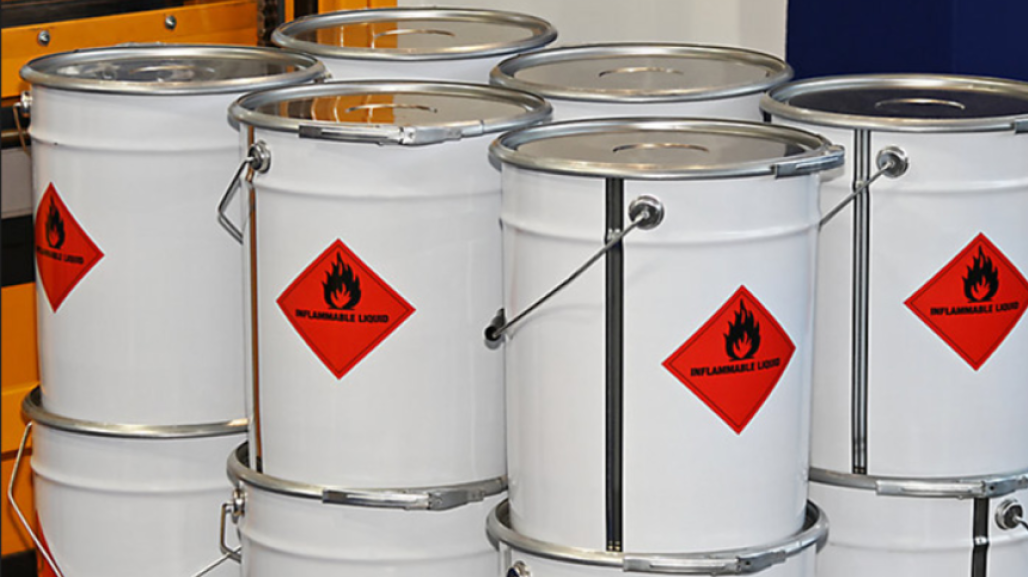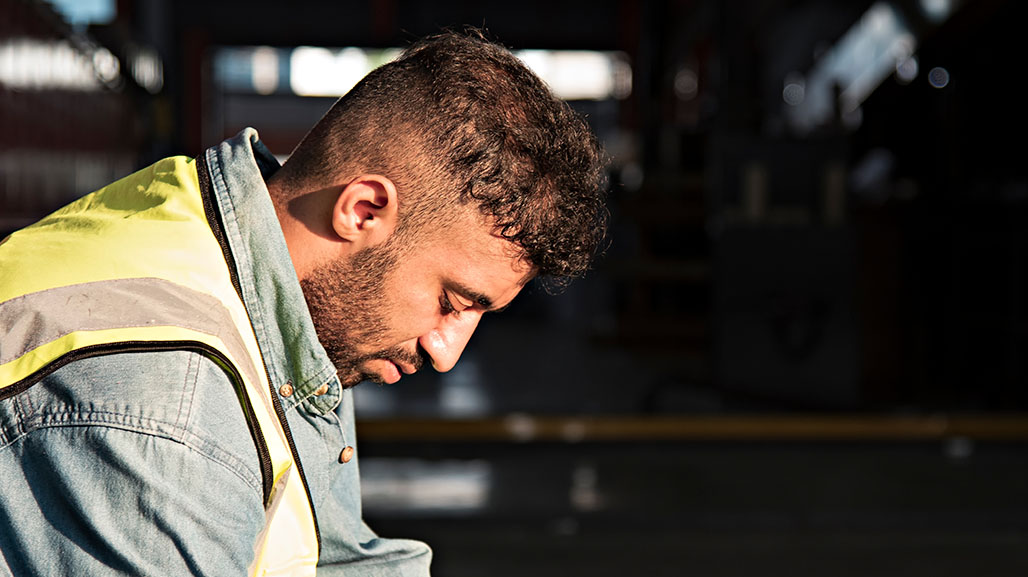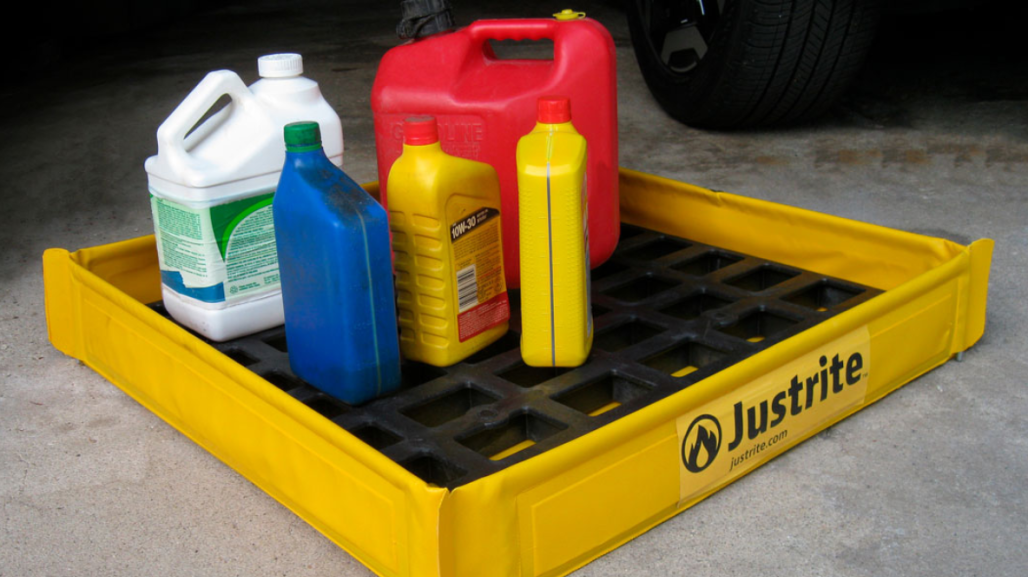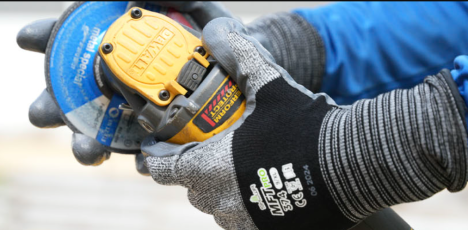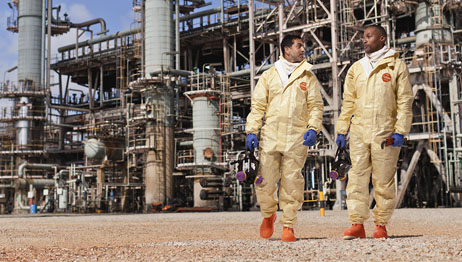Face Masks: Benefits & ID Safety
Research has shown that wearing a cloth face covering is the best way to slow the spread of infectious diseases like COVID-19.
Research has shown that wearing a cloth face covering is the best way to slow the spread of infectious diseases like COVID-19.
Research has shown that wearing a cloth face covering is the best way to slow the spread of infectious diseases like COVID-19.
Face masks limit the transmission of respiratory droplets from traveling into the air and onto other people when the person wearing the cloth face covering coughs, sneezes, talks, or raises their voice. Experts still warn that using a face mask does not replace the need for proper handwashing.
A hazard assessment can direct you towards the best approach forward for your place of business. As in traditional workplace safety programs, signage is also an important component of a robust/effective safety plan. Within the hierarchy of controls, signage is an effective reminder when no one else is around, or for when a prominent message must be placed at a location where it must be clearly communicated.
Over a year into COVID-19’s spread in the United States, there is clear evidence from clinical studies that show cloth face coverings reduce the spray of droplets when properly worn over the nose and mouth. COVID-19 spreads mainly among people who are in close contact with one another (within approximately 6 feet), so the use of cloth face coverings is important in tight settings or where social distancing is difficult to maintain.
General public
• CDC recommends all people 2 years of age and older wear a cloth face covering in public settings and when around people who do not live in your household, especially when other social distancing measures are difficult to maintain.
• COVID-19 can be spread by people who do not have symptoms and do not know that they are infected. That’s why it’s important for everyone to wear cloth face coverings in public settings and practice social distancing (staying at least 6 feet away from other people).
• While cloth face coverings are strongly encouraged to reduce the spread of COVID-19, CDC recognizes there are specific instances when wearing a cloth face covering may not be feasible. In these instances, alternatives should be considered whenever possible.
Here are the most common types of masks/face coverings:
1. Cloth Face Covering
Examples vary widely for these, but cloth face coverings can be purchased or made at home from cotton material. According to CDC guidance, an effective cloth face covering should:
be snug, but fit comfortably against the side of the face
be secured with ties or ear loops
include multiple layers of fabric (two or more)
allow for breathing without restriction
be able to be laundered and machine dried without damage or change to shape
2. Medical/Surgical Masks
Easy to recognize—these are usually blue or green. They are made of several layers of thin fabric and designed to be used only once. However, their looser fit makes them less effective than an N95 respirator, so they are not suitable for extensive use around those known to have the virus.
3. Respirators (including N95s)
A respirator is a high-level, tight-fitted mask suitable for the riskiest of environments. They often feature a vent that allows for external air flow. Due to this type of ventilation, they should not be worn around those who are not wearing a mask. Examples include 3M’s 8511, Honeywell’s Saf-T-Fit or the Moldex 2300N95.
It is not known if face shields provide any benefit as source control to protect others from the spray of respiratory particles. As of late July 2020, the CDC does not recommend use of face shields for normal everyday activities or as a substitute for cloth face coverings. Some people may choose to use a face shield when sustained close contact with other people is expected. If face shields are used without a mask, they should wrap around the sides of the wearer’s face and extend to below the chin. Disposable face shields should only be worn for a single use ONLY and should meet stringent ANSI standards if being used in non-traditional workplace settings such as construction. Ask your supplier if their product meets these standards. Reusable face shields should be cleaned and disinfected after each use.
Yes. It is perfectly legal for businesses to require that employees wear masks. However, employers need to be aware that mandating masks may make them subject to OSHA standards related to Personal Protective Equipment, which means they must:
Conduct a facility hazard assessment.
Provide the masks.
Train employees how to wear masks.
Clean and maintain masks.
Cover all associated costs.
Ensure the proper signage is displayed in the facility.
There are further, more stringent rules covering the use of respirators.
State and local face covering mandates and guidelines change, seemingly by the day. Within this document NMC has provided a direct link to regularly updated STATE mandates, but be advised, local standards may differ from state standards. It is important to stay tuned into local face covering ordinances in your state. Some localities also offer signage templates – eliminating any guesswork on messaging or wording nuances (also known as loopholes). With changing standards and conflicting media communications, signage clears up confusion. Prominent signage, for example 'NOTICE Face Mask Required', remove confusion prior to entry and explain expectations within your place of business.
Ultimately, face mask requirements are nowhere near as complicated as some of the guidelines and standards surrounding such things as Lockout/Tagout, Machine Guarding, or Fall Protection. Should you choose to require face coverings at your place of business, follow the proper OSHA guidelines touched on earlier to ensure employee safety. Lastly, post clear, concise signage that outlines the steps that must be followed as a person walks through your doors – with a clear eye on complying with state and local mandates.
Learn how you can create a safer workplace with the help of NMC in this video.
AccuformNMC is the leading manufacturer of American made safety products—including over 16,000 signs, tags, & labels ready to ship next day. Our commitment is to support every safety ID need, with product, service, and custom solutions. We offer the toughest signs and labels in the market and guarantee them for life. Protected with Sign Muscle®, a liquid laminate strong enough to protect against fading, it allows easy graffiti removal, resists chemical corrosion, and is applied for free.

